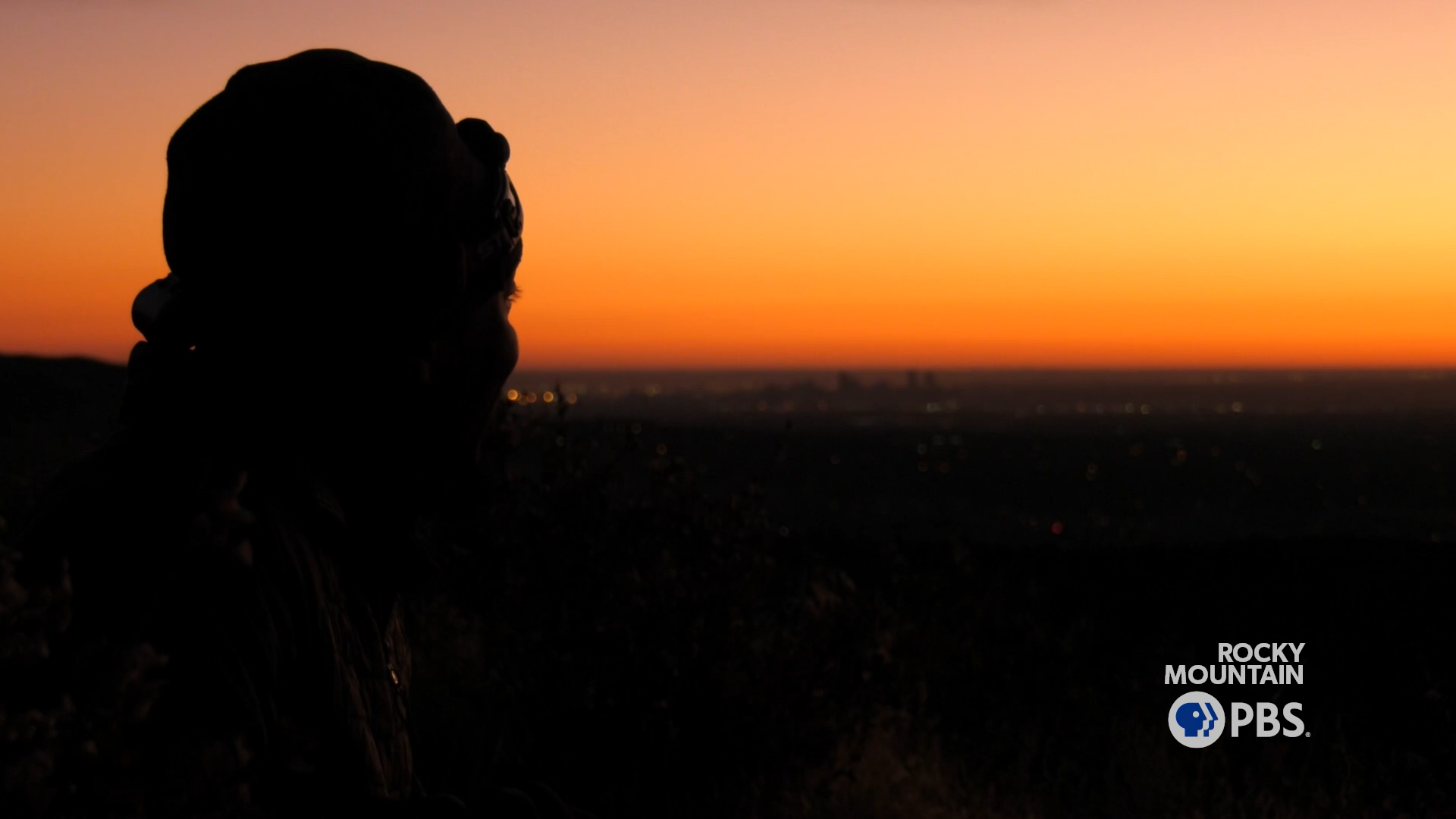The 'Black Sherpa' summits every Colorado 14er in a push for more diversity in outdoor recreation

DENVER — In June of 2020, as millions of Americans grappled with the expanding COVID-19 pandemic and the country’s reckoning with racial injustice, Evan Gill started a mission to complete something few Black men had done before: summit every fourteener in Colorado.
Gill, also known as the Black Sherpa, is originally from Baltimore, Maryland. He moved to Colorado three years ago with his family because of work.
He quickly fell in love with Colorado’s outdoors, but considering he was raised at sea level (the highest peak in Maryland is just 3,360 feet, and Baltimore's elevation is less than 500 feet, even at its highest point), it is no surprise that he faced a learning curve about as steep as the mountains he wanted to climb.
“My very first hike, I did everything wrong. I did literally everything wrong,” Gill reflects. He wore denim jeans, a cotton hoodie, and shoes that were not water resistant. He also forgot to bring a first aid kit.
As he became a more adept hiker, though, the trauma of 2020—particularly for people of color—resulted in Gill, who is an Army veteran, struggling with depression and anxiety.
Hiking served as a physical and mental escape.
“No matter what happens in life, that the sun will always rise and set the same way is amazing,” Gill said on a recent sunrise hike.
In addition to improving his physical and mental health, Gill wanted his journey through Colorado’s outdoors to serve as inspiration to other people of color.
“In order to get people outdoors that are of color...one, we need the education,” Gill said. Just as important, he said, is that people need access to proper equipment. But the backpacks, boots, clothes and gear necessary to hike on Gill’s level can cost hundreds of dollars, money that many people don’t have.
As for Gill, he is sponsored by Vibe Tribe Adventures, a nonprofit that offers outdoor recreation opportunities to people of color.
“Anyone—a person of color— that would like to start out doing extreme sports but they need safety training, they need mentorship. And that’s where Vibe Tribe came in and we were able to provide those resources for [Gill],” said Jessica Newton, founder and CEO of Vibe Tribe Adventures.
Newton's nonprofit gave Gill backcountry hiking and avalanche training, as well as gear that he said was integral to accomplishing his goal of summiting every fourteener.

When he is hiking, Gill often notices that he is one of the few—if only—people of color on the trails.
“Rarely do you see us during the week,” Gill remarked. “I think we’re working? I'm not trying to speak for everyone here.”
[Related: Three Coloradans part of a group attempting to be the first all-Black team to climb Mount Everest]
The data back up some of Gill’s observations. In 2018, a study found that between 2010 and 2014, nearly 95% of visitors to national forests were white. Just 1.2% were Black. According to the National Health Foundation, “Black people remain the most dramatically underrepresented group” in national forests, national wildlife refuges, and national parks.
It should be noted, too, that the history of National Parks and outdoor recreation is, in many cases, a history of violence against people of color. Almost all National Parks are on land that was once home to Native and Indigenous people. As the parks were established, those people were pushed from the land and in many cases killed.
And for much of the first half of the 20th century, many National Parks were segregated.
[Related: How the National Park Service grappled with segregation during the 20th century]
On September 25, 2021, Gill made history of his own: After summiting Capitol Peak (elevation 14,130 feet), he officially reached the top of all 58 fourteeners in Colorado.
Related Stories
Gill purposefully ended with Capitol Peak.
“That was my last fourteener and it was my last fourteener for the very specific reason that it is the most dangerous,” he explained.
Gill reached these summits on his own. “I didn't have someone waking me up in my tent or motivating me saying, ‘Hey, you’ve got this.’ So all of that had to come from within.”
But now that he’s done with his journey, he hopes his story can serve as that same motivating factor for others, especially people of color.
“I just want to remind people that this is here for us to explore and really take advantage of,” Gill said. “And we just really don’t do it.”
Julio Sandoval is a multimedia journalist at Rocky Mountain PBS. You can reach him at juliosandoval@rmpbs.org.
Kyle Cooke is the digital media manager at Rocky Mountain PBS. You can reach him at kylecooke@rmpbs.org.
